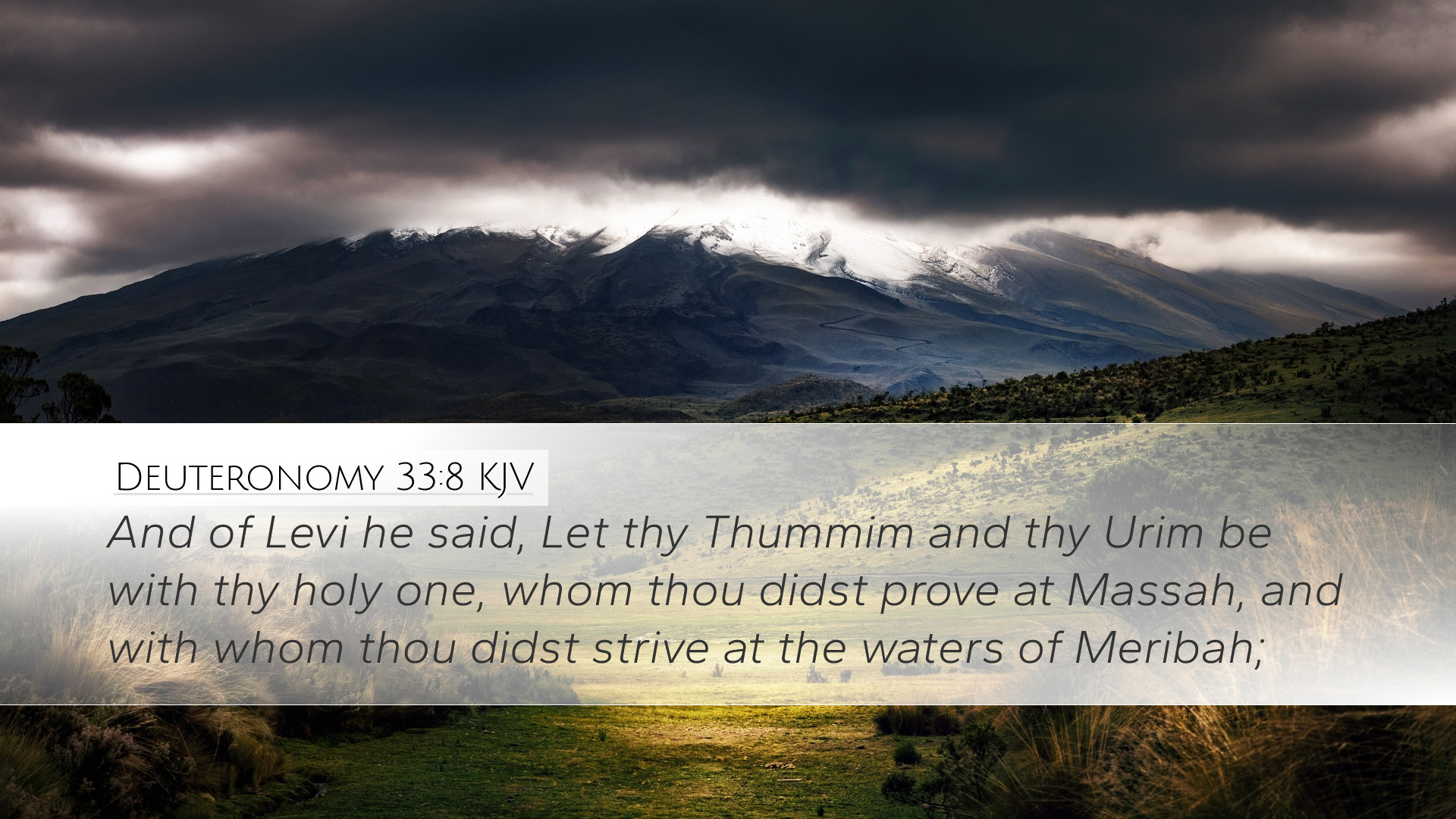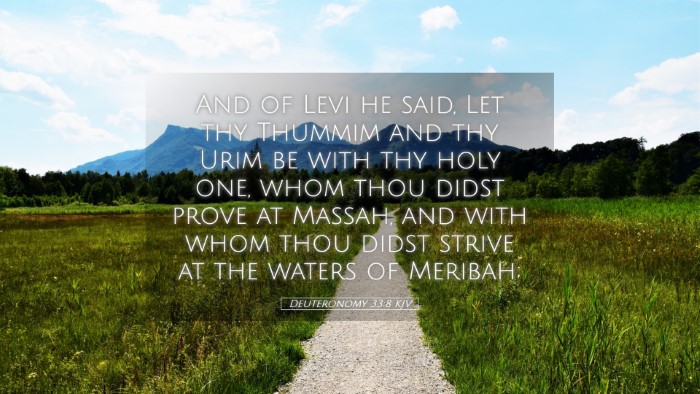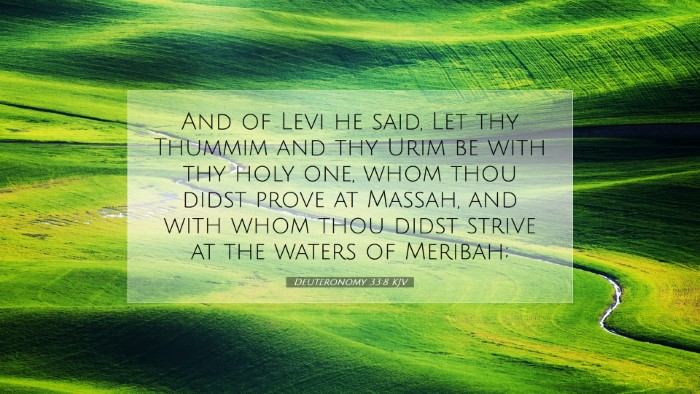Commentary on Deuteronomy 33:8
Deuteronomy 33:8 states, "And of Levi he said, Let thy Thummim and thy Urim be with thy holy one, whom thou didst prove at Massah, and with whom thou didst strive at the waters of Meribah;" This verse is significant in understanding the role of the Levites and the broader implications of priestly service in the context of Israel's covenant with God.
Contextual Overview
The passage occurs in the closing chapters of Deuteronomy, where Moses blesses the tribes of Israel before his death. Each blessing is tailored to the characteristics and historical roles of the tribes, highlighting their unique relationship with God.
Insights from Public Domain Commentaries
Matthew Henry's Commentary
Matthew Henry emphasizes the distinction of the tribe of Levi, which was set apart for the service of the Lord. He highlights that the Thummim and Urim, instruments used for divine decision-making, were significant as they exemplified God's direct guidance. Levi is referred to as "God’s holy one," indicating their special consecration for priestly duties. The reference to Massah and Meribah speaks to Israel's struggles and God's faithfulness during those tests, where the Levites would later intercede on behalf of the people.
Albert Barnes' Notes
Albert Barnes notes that the Thummim and Urim, while their exact nature is often debated, represent the means by which God communicated His will. Barnes explains that the mention of being "proved at Massah" serves as a reminder of human infidelity contrasted with Divine faithfulness. This historical context sheds light on the importance of trusting in God's guidance amidst trials. The reference to the waters of Meribah serves as a cautionary reminder of the consequences of rebellion against God’s appointed leaders.
Adam Clarke's Commentary
Adam Clarke expands on the significance of the Urim and Thummim, suggesting they were essential for discerning the will of God. Clarke relates the blessing to the larger mission of the Levites, as they were custodians of God's law and were to teach His commands. The trials at Massah and Meribah exemplified Israel’s failures in faith and the Levites' call to uphold God's standards amidst such disobedience. Clarke also draws parallels to the New Covenant, where believers are also called to be holy and to guide others in spiritual truth.
Theological Insights
-
Divine Guidance: The Urim and Thummim symbolize God's guidance and the importance of seeking His wisdom in decision-making, reflective of the broader biblical theme of divine providence.
-
Covenantal Faithfulness: The reminder of Massah and Meribah encourages reflection on Israel's covenant relationship with God, underscoring themes of fidelity and disobedience.
-
Levitical Priesthood: The Levi's role calls attention to the importance of spiritual leadership in the community and the need for intercession before God.
Practical Applications
-
Leadership in Service: Those in ministry must exemplify holiness and integrity, embodying the characteristics of the Levites by being devoted to God’s service and guiding the congregation.
-
Importance of Seeking God: Individuals and congregations should prioritize seeking God’s direction in their lives, emphasizing prayer, scripture, and reliance on the Holy Spirit.
-
Community Accountability: The failures at Meribah remind believers of the significance of accountability within the community. Encouraging one another in faith is essential for spiritual growth and resilience.
Conclusion
Deuteronomy 33:8 serves as a profound reminder of God’s guidance and the sacred calling of the Levites amidst Israel’s history. The Urim and Thummim symbolize the critical role of divine counsel in leadership and community, echoing the lessons learned from past generations. For pastors, students, and scholars, this passage invites contemplation on their roles within the covenant community and encourages a deeper commitment to seeking God’s face in all matters of life and ministry.


